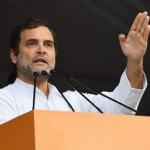
In a surprising turn of events, Belarusian President Alexander Lukashenko was reportedly rushed to a hospital in Moscow following his meeting with Russian President Vladimir Putin. The news comes amidst Russia’s formalization of a deal with the Lukashenko government to deploy tactical nuclear missiles in Belarus, further adding to the intrigue surrounding the situation.
According to a report by American weekly news magazine Newsweek, Belarusian opposition leader and 2020 presidential candidate Valery Tsepkalo claimed that Lukashenko was in critical condition at the Central Clinical Hospital of Moscow. Tsepkalo acknowledged that the information required further confirmation and had not been officially verified.
“The information we have, which requires additional confirmation, suggests that Lukashenko was urgently taken to the Central Clinical Hospital of Moscow after a meeting with Putin behind closed doors, where he is currently staying,” Tsepkalo stated in a Telegram post.
Tsepkalo’s message also implied that the measures taken to rescue Lukashenko were aimed at preventing speculation about Kremlin involvement in a potential poisoning incident. Doctors reportedly assessed Lukashenko’s condition as critical, and specialists were dispatched to provide necessary medical care.
Rumors about Lukashenko’s health had been circulating in the weeks following his appearance at the Victory Day celebration on May 9 in Moscow’s Red Square. Despite the speculations, Lukashenko himself dismissed the rumors, stating, “I’m not going to die, guys.”
Adding to the already tense situation, Russia and Belarus signed a deal last week to formalize the deployment of tactical nuclear missiles in Belarus. The agreement, reported by the Russian news agency TASS, involved the definition of procedures for storing Russian nuclear weapons at a special facility on Belarusian territory.
The Belarusian Defense Ministry emphasized that the measures taken by Russia and Belarus adhered to all existing international legal obligations. The defense ministers of both countries also discussed the current military and political situation, as well as matters of military and technical cooperation.
The combination of Lukashenko’s sudden hospitalization and the formalization of nuclear missile deployment has led to heightened speculation and concern within and outside Belarus. The international community will closely monitor the developments in the region, as the situation unfolds.
It is important to note that the reports regarding President Lukashenko’s health status and the alleged link to the meeting with President Putin remain unconfirmed, and further information is needed to provide a complete understanding of the situation.






